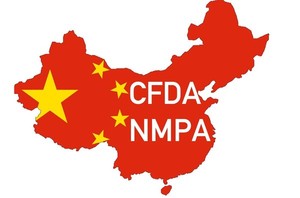On 7 April 2020, China’s Center for Drug Evaluation (CDE) published draft guidance on clinical trials for the approval of bevacizumab copy biologicals. This guidance is the second specific guideline released by the CDE in April. The agency also released guidance on adalimumab on 1 April 2020 [1].
China publishes draft guideline for bevacizumab copy biologicals
Home/Guidelines
|
Posted 08/05/2020
 0
Post your comment
0
Post your comment

The CDE, which is part of the National Medical Products Administration (NMPA), formerly the China Food and Drug Administration (CFDA, 国家食品药品监督管理局) – the Chinese authority that oversees all drug manufacturing, trade and registration in the country – has released the draft guidance for a one-month consultation period.
Guiding Principles for Clinical Trials of Bevacizumab Copy Biologicals
Date: April 2020
http://www.cde.org.cn/news.do?method=viewInfoCommon&id=315033
The draft guidance follows the format of the adalimumab guidance in outlining how companies should conduct pharmaceutical, non-clinical and clinical comparison trials in stages ‘using a step-by-step sequence’.
Bevacizumab is a humanized monoclonal antibody. It inhibits angiogenesis (the formation of new blood vessels) by blocking the action of vascular endothelial growth factor A (VEGF-A). Bevacizumab can therefore slow the growth of new blood vessels in tumours and is used to treat various cancers, including colorectal, lung, breast, glioblastoma, kidney and ovarian. The patents on the originator product, Roche’s Avastin (bevacizumab), expired in the US in July 2019 and will expire in Europe in January 2022 [2].
The draft guidance covers how to perform pharmacokinetic comparisons in healthy subjects and assess clinical effectiveness in patients. The guidance refers back to the overarching guidance on the clinical study of copy biologicals in China [1], but also features issues specific to bevacizumab and cancer patients taking bevacizumab.
The draft guidance recommends following one of three strategies for the patient population and endpoint for assessing clinical safety and effectiveness in patients:
-
Population: metastatic non-squamous non-small cell lung cancer (NSCLC) patients
Primary endpoint: objective response rate (ORR) as a relatively insensitive endpoint
Comparator: head-to-head equivalence study with the originator biological, Avastin -
Population: domestically approved indications
Primary endpoint: progression free survival (PFS) or overall survival (OS)
Comparator: other optional standard treatments other than Avastin -
Population: indications approved abroad but not approved in China, such as kidney cancer, ovarian cancer
Primary endpoint: PFS or OS
Comparator: current standard treatment of target indications - Population: indications that are not approved at home and abroad for clinical research, such as macular degeneration of the retina.
The draft guidance does, however, point out that option 1 is the method most commonly chosen by current R & D companies and is the recommended clinical development strategy for bevacizumab copy biologicals. This is also the only route to extrapolation of indications.
Other bevacizumab-specific issues discussed in the guidance include the criteria for selecting study subjects, dose/dosing regimen and route of administration, combination with chemotherapy drugs, endpoints, boundary value selection and sample size calculation, as well as safety and immunogenicity studies for bevacizumab.
The draft will be a welcome addition to the guidance on copy biologicals already published by the CDE [3]. Chinese companies known to be working on copy biologicals of bevacizumab include Bio-Thera Solutions, Innovent Biologics, Mabworks, Qilu Pharmaceutical, Shanghai Henlius Biotech (Fosun Pharma) and TOT Biopharm [2]. In fact, the NMPA approved Qilu Pharmaceutical’s bevacizumab copy biological Ankada (QL-1101) in January 2020 [4].
The CDE is accepting feedback on the draft guidance until 7 May 2020.
Related article
Copy biologicals approved in China
References
1. GaBI Online - Generics and Biosimilars Initiative. China publishes draft guideline for adalimumab copy biologicals [www.gabionline.net]. Mol, Belgium: Pro Pharma Communications International; [cited 2020 May 8]. Available from: www.gabionline.net/Guidelines/China-publishes-draft-guideline-for-adalimumab-copy-biologicals
2. GaBI Online - Generics and Biosimilars Initiative. Biosimilars of bevacizumab [www.gabionline.net]. Mol, Belgium: Pro Pharma Communications International; [cited 2020 May 8]. Available from: www.gabionline.net/Biosimilars/General/Biosimilars-of-bevacizumab
3. GaBI Online - Generics and Biosimilars Initiative. Chinese guidelines for copy biologicals [www.gabionline.net]. Mol, Belgium: Pro Pharma Communications International; [cited 2020 May 8]. Available from: www.gabionline.net/Guidelines/Chinese-guidelines-for-copy-biologicals
4. GaBI Online - Generics and Biosimilars Initiative. China approves bevacizumab copy biological Ankada [www.gabionline.net]. Mol, Belgium: Pro Pharma Communications International; [cited 2020 May 8]. Available from: www.gabionline.net/Biosimilars/News/China-approves-bevacizumab-copy-biological-Ankada
Permission granted to reproduce for personal and non-commercial use only. All other reproduction, copy or reprinting of all or part of any ‘Content’ found on this website is strictly prohibited without the prior consent of the publisher. Contact the publisher to obtain permission before redistributing.
Copyright – Unless otherwise stated all contents of this website are © 2020 Pro Pharma Communications International. All Rights Reserved.
Source: CDE
Policies & Legislation
Brazil and Mexico forge alliance to streamline medical approvals and boost production
EU accepts results from FDA GMP inspections for sites outside the US
Most viewed articles
The best selling biotechnology drugs of 2008: the next biosimilars targets
Global biosimilars guideline development – EGA’s perspective
Related content
US guidance to remove biosimilar comparative efficacy studies
New guidance for biologicals in Pakistan and Hong Kong’s independent drug regulatory authority
Canada poised to remove requirement for Phase III trials for biosimilars
European position paper on AI in medicinal product lifecycle
New guidance for biologicals in Pakistan and Hong Kong’s independent drug regulatory authority

Home/Guidelines Posted 20/10/2025
Canada poised to remove requirement for Phase III trials for biosimilars

Home/Guidelines Posted 22/07/2025
The best selling biotechnology drugs of 2008: the next biosimilars targets








Post your comment